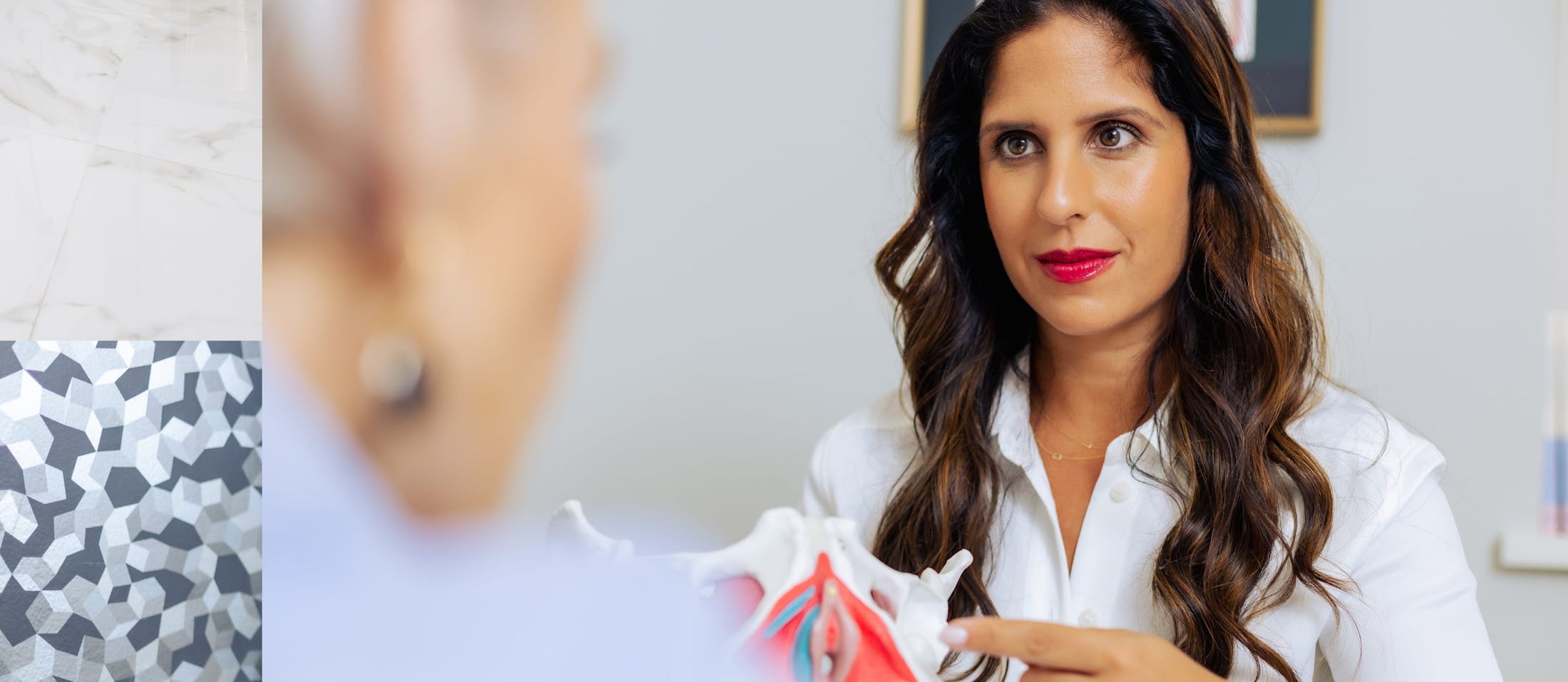
At Pelvic Pain Doc, we’re here to have real conversations about sexual health — good, bad and ugly. One of the most common, not-so-fun conditions our New York pelvic pain patients are dealing with? Chronic candidiasis, better known as chronic yeast infections.
Most women will have at least one yeast infection in their lives, so if you’ve had one or two, there’s nothing to worry about. It’s simply a normal part of having a vagina! But if you keep getting yeast infections over and over, it could be a sign of a bigger issue. Here, Dr. Sonia Bahlani explains:
What a yeast infection isWhat causes chronic candidiasisHow to treat recurrent yeast infections
What is Chronic Candidiasis?
Candidiasis is an incredibly common type of vaginal infection caused by an overgrowth of fungus (specifically a type called candida) in the vagina. If yeast infections recur even after treatment, typically four or more times per year, they become chronic. While three quarters of women will experience one case of candidiasis in their lifetime, 8% will have recurrent cases.
If you’ve had a yeast infection before, chances are you’ll know if you get another one based on your symptoms. The most common symptoms of yeast infections are:
Sensations of burning, rawness, throbbing, stabbing or aching in the vaginaThick, white, odorless discharge that resembles cottage cheeseVaginal itchingPain or burning sensation during intercoursePain or burning sensation while urinatingPelvic pain
If you’ve been treated for candidiasis and the infection keeps coming back, it’s more than just a frustrating inconvenience. There’s a reason for recurring yeast infections and working with a pelvic pain specialist can help you identify (and treat) the underlying cause.
What Causes Chronic Yeast Infections?
Candida occurs naturally in the body, including the vagina, and we typically have appropriate bacteria to keep the fungus in check. However, if the bacteria becomes imbalanced, it allows candida to thrive, resulting in yeast infections. This candida overgrowth can be brought on by a number of factors, such as antibiotics, poor diet, pregnancy, hormonal imbalances, uncontrolled diabetes and immune system disorders. Initial yeast infections are typically treated with a vaginal antifungal suppository, such as Canesten, but if the infection doesn’t clear, it can come back.
Candida infections are not unique to the vagina — they can also occur on the skin and in the mouth. Because of this, yeast infections can be spread through skin-to-skin contact. While a yeast infection is not considered a sexually transmitted infection, it can be passed between sexual partners without your even realizing. This applies for both vaginal and oral sex.
If you’re suffering from chronic candidiasis, the most important thing to do is get a correct diagnosis. Many people think they have a recurrent yeast infection when really, they have a different type of infection altogether. Conditions like bacterial vaginosis, certain STIs and skin allergies may mimic the symptoms of yeast infection, but they require a very different course of treatment and will not respond to medications for yeast infections. Before starting any treatment, talk to a doctor to find out if you really do have candidiasis.
How to Treat Chronic Candidiasis
As we mentioned, treatment for chronic candidiasis starts with first making sure there is an actual infection present. In 33% of cases, patients have negative cultures and their symptoms are actually caused by inflammation of the vagina (or a different type of infection).
If you do in fact have a yeast infection, your doctor will likely treat you with either an oral medication or a vaginal suppository. To make sure the infection clears and to prevent it from coming back, be sure to complete the entire course of treatment.
As with all health conditions, it’s always better to prevent it from happening in the first place than to treat it later on. Fortunately, there are steps you can take at home to reduce your chances of recurrent yeast infections, including:
Better understanding of the vaginal microbiomeHygiene to maintain proper pH balance of the vaginaAvoiding douchingSafe sex practicesLifestyle changes, including dietRegularly washing items that come into contact with the infected area to avoid reinfection
Candidiasis, while a minor health concern, can be incredibly disruptive to your life — especially if it becomes chronic. You don’t have to accept it as part of your life. Contact Pelvic Pain Doc to book a consultation and discover what’s causing your recurrent yeast infections today.

